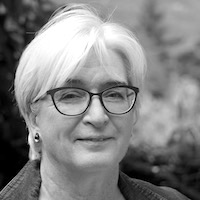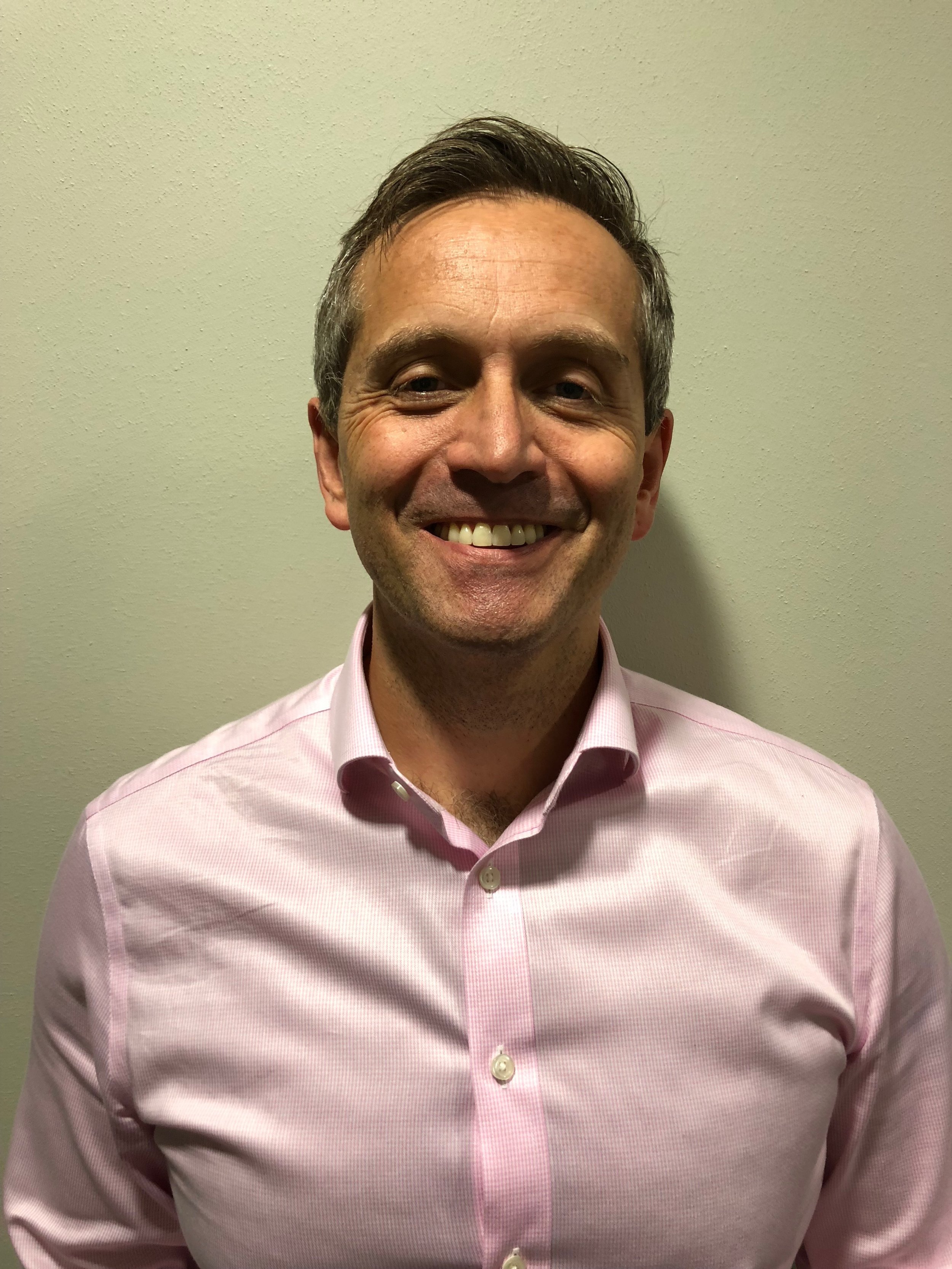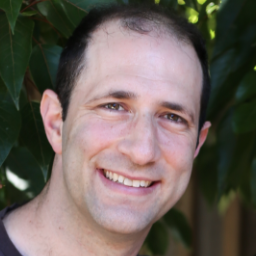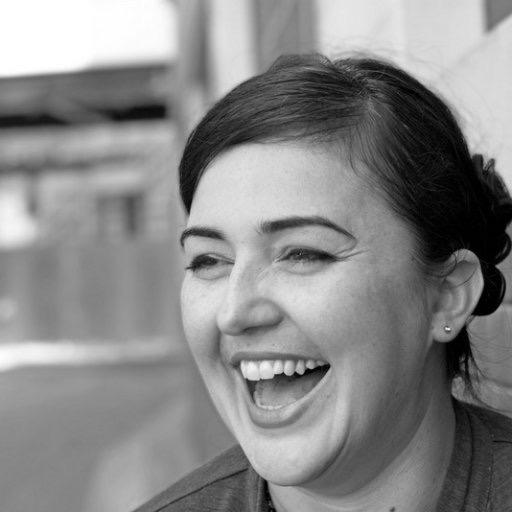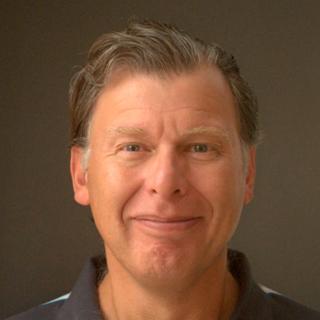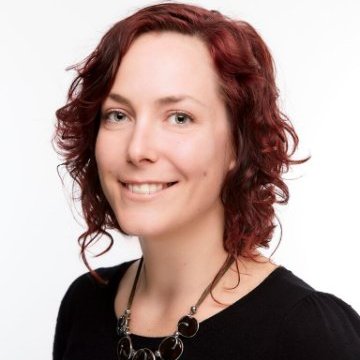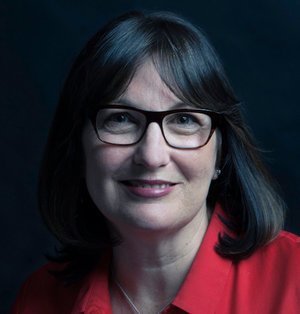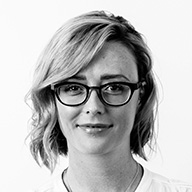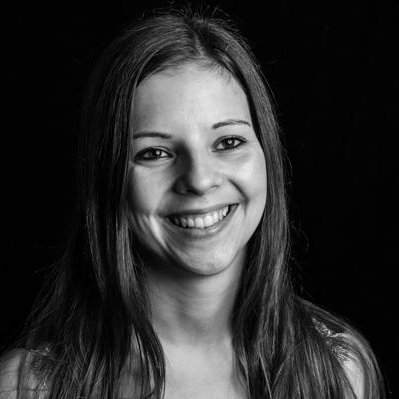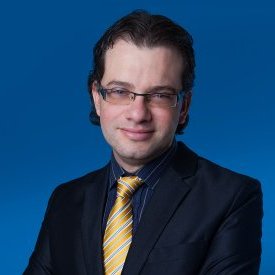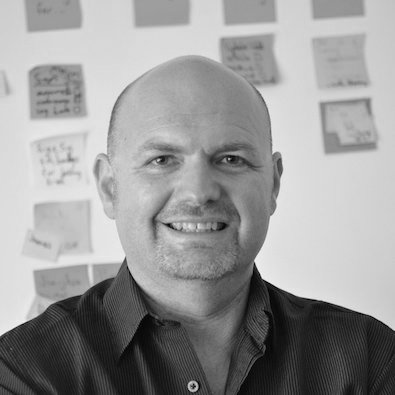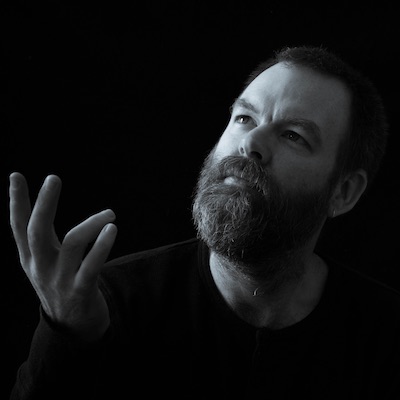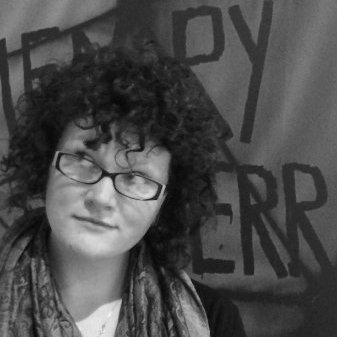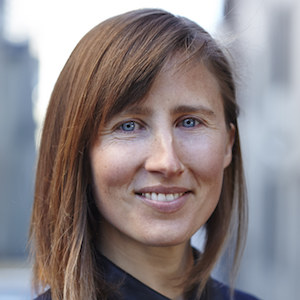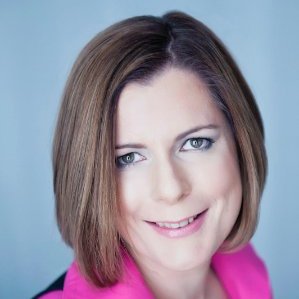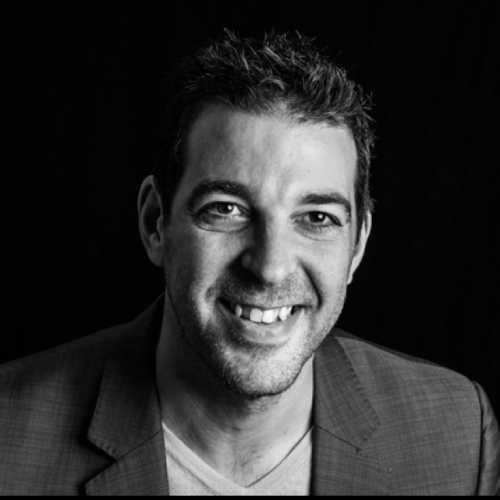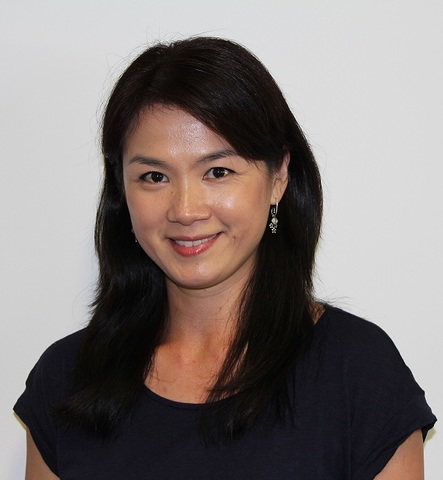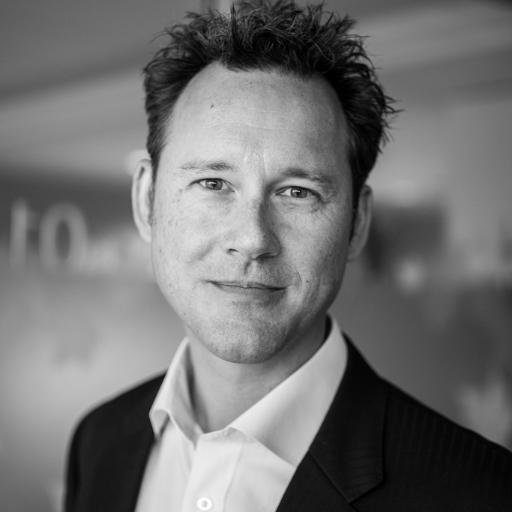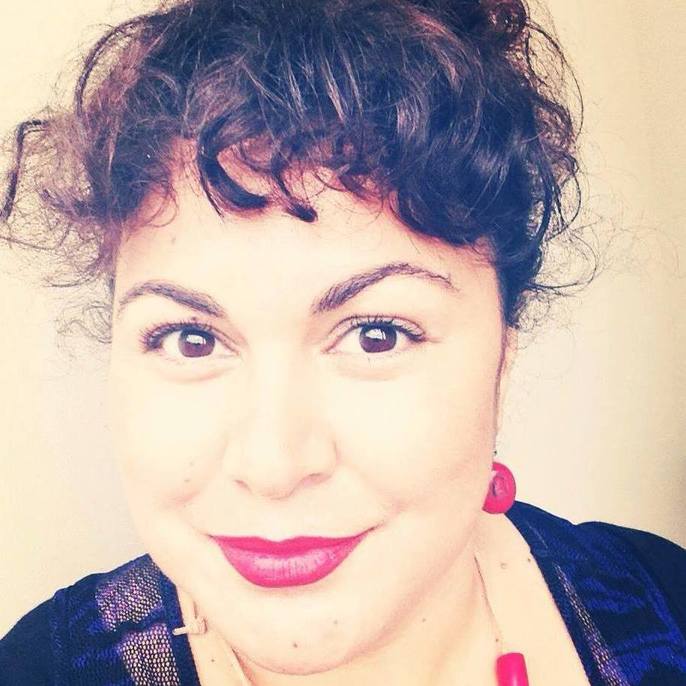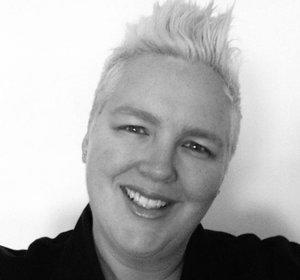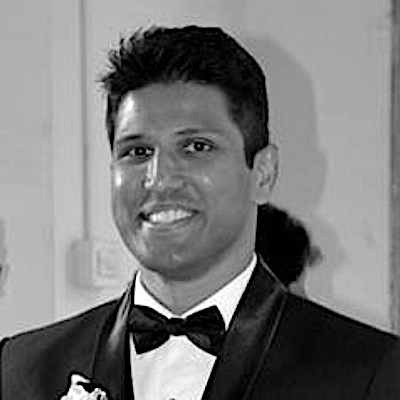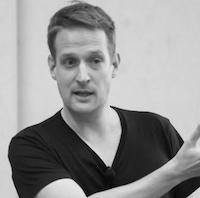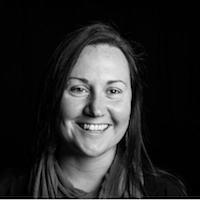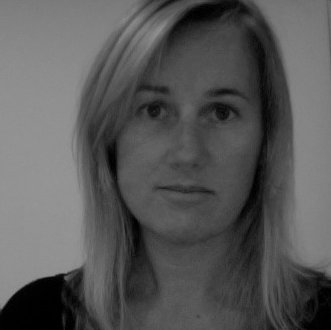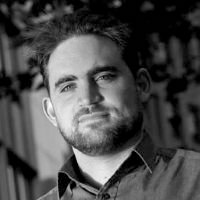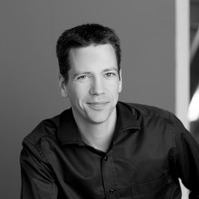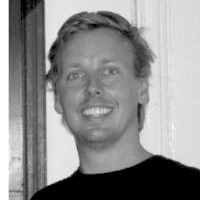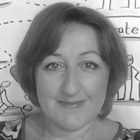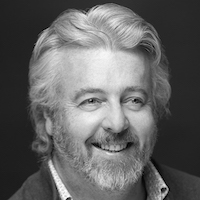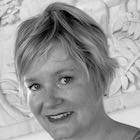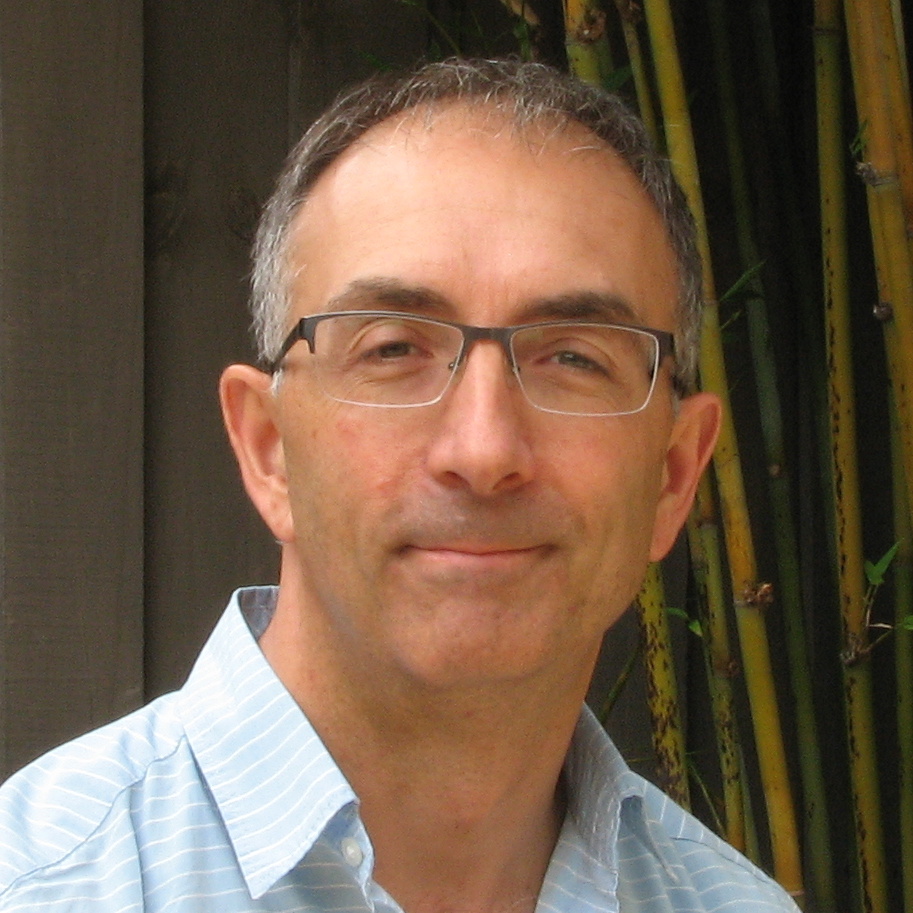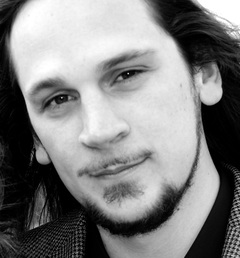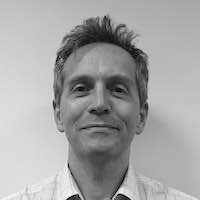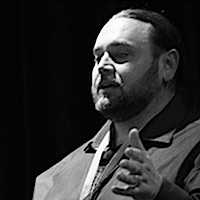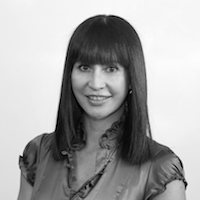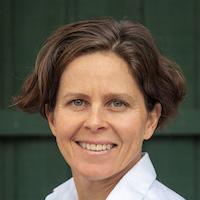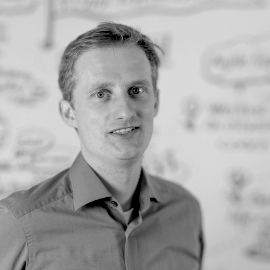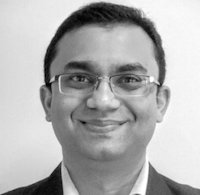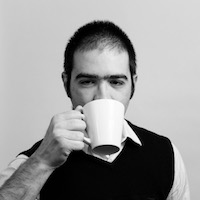We have used our extensive network to find some great presenters and facilitators to help you to understand how to promote Organisational Agility.
2018 Format
Day 1 & Day 2 - Talks and workshops
The format for 2018 will be a mixture of talks and short workshops. The talks will be designed to stimulate and challenge your thinking around growing a culture of Organisational Agility. The workshops will help you to more deeply understand concepts and give you practices that you can try immediately. Added to this, The Heart of Agile framework is used as a useful bridge to Organisational Agility.
Find out more about the schedule or…
Day 1
MC/Host - Andy Kelk
Andy will be introducing speakers and facilitating the Q&A, in the main Auditorium. He was a speaker at 1st Conference in 2016, and a several editions of LAST Conference in Melbourne, as well as organising the inaugural LAST Conference Sydney.
He is the Chief Technology Officer at Marketplacer – a global provider of marketplace platforms. With a background in digital businesses, Andy combines strong technology knowledge with commercial understanding. Andy has previously worked for News Corp, REA Group, iProperty Group and Australia Post leading product and technology development. He works in Agile environments and is passionate about developing and mentoring teams to build great products.
Andy Kelk
Speakers
Keynote speaker - Joanne Molesky
Joanne Molesky
Joanne Molesky will be with us in Melbourne, all the way from British Columbia. She is a Principal Associate at ThoughtWorks, a global software delivery and consulting company. She is currently a key member of their internal TechOps Management team, with responsibilities for IT Governance, Risk and Compliance. She has lead both the global Continuous Delivery and InfoSec teams at ThoughtWorks and is co-author (with Jez Humble and Barry O'Reilly) of the book Lean Enterprise, published by O'Reilly Books.
Her passion is for finding ways to reduce risks related to software delivery and its use without compromising creativity, experimentation and learning. Over the course of her many years of work experience in both IT and Healthcare, there is one important thing she has learned: "Things change, get over it and to learn to adapt."
The two links below will take you to content we developed to help you learn more about Joanne, her views on the challenges and opportunities the workforce faces and the ways she thinks you can prepare for the conference.
"Part One - Why Organisations Need to Change"
"Part Two - 4 Things to know about the Australia Workforce and How to Prepare for the Change"
Below - Joanne previews her visit in a short video - or check out the full versions in the links above.
Dmitri Colebatch - Driving Agile in the home of Agile: Toyota
Dmitri Colebatch
The Toyota Way and TPS are both at the heart of Agile, so it will come as a surprise to learn that Toyota Australia has not always used Agile for IT. In this talk you will hear the story of how a small group of proponents grew, and over time succeeded in re-introducing Toyota to Toyota. I have been at Toyota for 14 years, and have certainly changed the organisation in that time - but I've made mistakes along the way; I think many of these are worth sharing.
Dmitri is a self-taught developer turned evil-manager type. In his younger days he was introduced to XP and then Scrum, and in his time at Toyota has maintained a love of Agile, whilst learning the right and wrong was to implement change throughout an organisation. Currently he is Corporate Manager - Solutions, at Toyota Australia.
Sharon Robson - Perspectives on Agility
Sharon Robson
In this session Sharon will discuss what “true” agility is and how that can apply to the Enterprise. Spreading the principles behind agility as the basis for Enterprise agility is the focus of the Enterprise Transformations that Sharon undertakes. Sharon will cover how agility concepts can be used poorly and to the detriment of the agile concepts and what teams can do about that. Sharon will discuss how the “agile movement” has changed over time and where the future of agility looks to be going. Key take-aways from this session will be an understanding of what the core of agility is, how to spot when agility is not being applied at the fundamental level, and then how to get it back on track, quickly and easily.
Sharon is the Head of Agility at Tatts Group in Brisbane. She works with Leadership Teams to transform organisations, building High Performing Teams. Following the principles of agility and Lean, as well as using Higher Order Thinking Skills, Performance Optimisation Techniques, Engagement Models, Leadership Application Skills, Communication Techniques, Planning Approaches.
Over the course of her career, Sharon has been a Consultant, Senior Tester, Test Manager and Practice Lead, specialising in Software Testing and Agile practices. She has worked with training organisations, large consulting companies, amongst others.
Sharon was a founding board member of ANZTB (Australia and New Zealand Testing Board as part of the International Software Testing Qualifications Board - ISTQB). Sharon was also the chairperson of the Marketing Working group for the ISTQB. In addition, Sharon is a member of the Agile Alliance and the Association for Software Testers. She also researches and writes papers on Agile test approaches in various business domains.
Day 1 Workshop Facilitators
Dan Prager and Jemma Ritchie - Facilitating with Finesse
dan prager
Jemma Ritchie
Every Agile coach and her dog claims to be a skilled facilitator. So does your boss. But are they really? What does great facilitation look like? Join us for a facilitated workshop about facilitating workshops.
Workshop Outline:
Introduction: Why Facilitation?
The Facilitative stance: facilitators vs managers vs coaches
Planning a workshop
Setting the scene by building a safe container
Divergent thinking
What is "the groan zone?"
Dealing with disruption
Converging to a conclusion
Next steps - building finesse?
Workshop Outcomes:
The value of skilled, dynamic, unbiased facilitation
Dos and don'ts for workshop planning
Dos and don'ts for facilitating
The importance of personal development for improving as a facilitator
Some options for developing your facilitation skills
Dan works with forward-thinking organisations to introduce and tailor Agile practices to fit their context. He works with leadership and teams to co-create positive change at all organisational levels. A former mathematical physicist, Dan moved into software design and development late last century and was an early adopter of Agile approaches. Besides science and software, Dan’s approach to coaching has been strongly influenced by his experiences in learning and teaching martial arts, and his training in improvisational theatre. Dan is a co-founder of youpatch.com (a craft/tech startup) and skillfire.co (a virtual Agile/Digital consultancy and community).
Jemma is collaborating with teams at NAB to ignite change and evolve systems of work. A background in dispute resolution led Jemma to develop a keen interest in human behaviour and the importance of effective communication. This informed her calm and considered coaching and facilitation style. Jemma's approach is human-centred and is strongly influenced by her yoga and meditation practices.
Ed O'Shaughnessy - Go Forth and Self-Organise! Strategies & Tactics for Building Great Teams
Ed O'Shaughnessy
Workshop Outline
This workshop will explore what it means to self-organise through an understanding of the fundamentals, the relaying of experiences helping teams in the field develop their self-organising capabilities, and some fun role playing exercises to illustrate and convey techniques that anyone can easily adopt to help improve the effectiveness of their teams.
Workshop Outcomes
The theory behind collaborative work in teams, the conditions that enable self-organisation, and plenty of simple techniques to help with teaching and coaching their colleagues.
An understanding and appreciation of what it means to be a self-organising team, how to bring this about and sustain it for the long term, some easy tools and techniques to help, and simple ideas to experiment with at their place of work.
Ed's driving purpose is to help people work together more effectively. To achieve this, he uses experiential coaching and teaching so that everyone can realise their greatest potential in a safe and humane environment. He draws on a wide-ranging background in the defence, life sciences, automation, and financial industries to bring clarity to complex, evolving situations, helping people make sense of the challenges, learn how to be successful, and chart their path forward.
Neil Killick - From business case to backlog using Lean Canvas and Story Mapping
neil killick
Workshop Outline
When using Agile approaches, there is a desire to get our product ideas into the customer's hands as soon as possible. With this comes the risk that we rush in and build something which will not deliver genuine value to the business, or at least enough value to justify the investment. In this workshop you will take a real world idea from concept to cash. First, you and your team will use the simple and effective power of Lean Canvas to build a solid business case, and convince your executive (me) that your idea is a good use of company funds. Then your team will build a Story Map to quickly understand the capabilities you need to deliver first so your company can get beat its powerful competitors to market.
Workshop Outcomes
How to use Lean Canvas to quickly build a convincing business case to solve a valuable customer problem
How to use Story Mapping to quickly and collaboratively prioritise key capabilities to deliver value to customers and the business in a short amount of time
The power of collaboration and co-creation
How much can be achieved in a very short time
Neil is an internationally recognised expert in software product development, specialising in Agile and Lean methods. He has been delivering working software (and helping others do it) for over 22 years, including some of the first online mapping, live traffic and travel planning applications. He is also one of the 3 original pioneers of the #NoEstimates movement.
Paul Szymkowiak and Jared Quinert - Using a Federated Framework to surface Stakeholder Value
paul szymkowiak
jared quinert
Workshop Outline
Value is something that each of us have deep personal experience with, and an intuitive sense for: much like Quality, we know it when we see it. It's a word that is used freely in discussion, and springs to use for each of us readily. But if we look deeper - do we really know what Quality and Value really are? Put us to the task of defining it in terms that can be discussed with others, and we often face challenges. This workshop will give you experience with a fun, flexible and easy-to-use framework for understanding and aligning on what Quality means to you and other stakeholders within your context. You'll be able to leverage the framework in any aspect of your work or personal life to help you understand what really matters.
Workshop Outcomes
A new technique for reasoning both individually and collectively about Quality and Value.
Paul's work enables leaders to build strategic-thinking agile teams through mentored skill development. He has spent 30 years helping others to grow and improve their collaborative capabilities. He works as an independent consultant, delivering mentoring, coaching and Education. In addition to developing the Federated Quality Framework, he is a founding member of the Context-Driven Testing community, and he authored the testing approach within RUP: the first widely-used method framework that supported scaled-agile development. He and has been mastering his business and product development skills for over 30 years in a wide variety contexts, mentoring teams and organisations across multiple continents. An experienced product-development coach, he is currently focused on bringing context-driven practices to business strategy and lean service improvement, and in developing a STEAM education extension curriculum for primary and secondary students.
Jared is a testing consultant located in Melbourne, Australia. With over fifteen years of experience, he specialises in agile testing, context-driven testing and intelligent toolsmithing with a focus on business outcomes over process. As one of the most experienced agile testers in Australia, he has been diving in hands-on since 2003 to discover how to build successful whole-team approaches to software development.
Alex Sloley & Damian Troselj - Build your own Canvas
Alex sloley
Damian Troselj
Workshop Outline
The Business Model Canvas and the A3 Report are classic examples of using visualization tools to help you/a team/an org analyze and plan. However, you might find that available canvases don't really suit your needs. Would you really use the traditional Business Model Canvas for a legacy product in a large enterprise? Come learn about classic examples of canvases and what they are trying to achieve. Learn about a simple framework that enables you to build a custom canvas that is suited to your needs. And walk away with a custom canvas, because you are going to build your own canvas in this workshop!
Workshop Outcome
The participants learn how to physically assemble their own custom canvas which they can take back to work with them. The bulk of the workshop involves the attendees actually building their canvas.
The key things you will learn by attending this workshop:
Overview classic canvases
Discover what a canvas is trying to achieve
Discover a custom canvas generation framework
Alex is an Agile consultant, specializing in Agile training, Agile coaching, and software development best practices. Alistair is a fifteen-year veteran of Microsoft where he acted as a Program Manager, Software Test Engineer, and Software Design Engineer in Test. At Microsoft, he shipped in over ten products, worked with Microsoft Research on multiple high-profile projects, and helped lead his organization into enterprise-level implementation of Scrum. As an Agile consultant for Steve McConnell at Construx Software, he led Agile transformation efforts at a variety of clients, spanning industries and incorporating a diverse range of Agile practices.
Damian is a digital consultant in Australia with 13 years experience leading projects of all sizes, from large international activities to small budget initiatives. His broad experience enables him to speak tech, business and marketing and serve as a translator between various stakeholders to deliver holistic digital solutions. He is passionate about creating meaningful technological solutions that solve real problems and deliver unique digital experiences. He believes that technology should always be shaped to complement and enhance human evolution.
Phil Gadzinski and Liam Brobst- ONE Small Step In A New Direction
Phil gadzinski
liam brobst
Workshop Outline
Helping you take the first step to address the problem of being able to shorten the distance between building the right thing and building the thing right, using a combination of design thinking, agile and lean in a practical sense. We intend to use a little theory and lot of practice, teaching attendees how to collaborate better so they can deliver more value.
Workshop Outcomes
How to take the first small steps towards adopting these principles and a sense of confidence and curiosity to take further steps.
The desire to learn and understand more about the path forward.
Phil is a tech Co-Founder and Enterprise Transformation Lead. "I am motivated by working with awesome people and agile teams at all scales, building great software products and amazing services that make people's lives better. Now leading a Strategic Agility Consulting which helps organisations to intentionally think about and design how they deliver customer value continuously. And get better at it. Knowledge Work Gemba Engineering is our forte!"
His motto is “be contrarian by making the complex simple”. If you want to think about things differently he would like to help you do that.
Liam's theme of work is quite simple; helping organisations design better customer experiences that deliver value for all participants in the system through iterative product and service strategy. Mostly in Digital, but not exclusively. While he pulls from Agile, TPS Lean and Design Thinking principles, he is open to whichever practices work best for the team and the situation. He is about curious action, speed to value and being less wrong today than yesterday through experimentation. His approach to leadership is based on trust, respect, proficiency and being a decent human being. When he's not working, he is a husband, friend, dog adopter, two-acre woodsman, volunteer CFA firefighter and student at the Improv Conspiracy Theatre.
Penelope Barr - Getting to MVP: Minimum Validated Problem
Penelope Barr
Workshop Outline
Many people have embraced the concept of MVP (minimum valuable product) ie the smallest increment of customer value. However, many people criticise MVPs for not being viable. I prefer to focus on delivering the right MVP(r) – Minimum Validated Problem ie a tested solution or experiment outcome aligned to a customer problem. We’ll explore the power of using an end-to-end model: Design-thinking to understand customer problems; Lean experimentation to validate these problems to arrive at the right MVP(r); which would then deliver an MVP using Agile techniques; & embed via Lean Change methodologies.
Workshop outcomes
Overview of an end-to-end model for managing problem:solution:delivery:change
The Lean sprint - design-thinking techniques to understand problems.
How to design an experiment
Creating the Validation plan & an experiments wall
Developing a one-page experiment report
Penelope is a globally-recognised, award winning innovator, intrapreneur, & technologist. Her work has been recognised with Innovation & Technology awards in 5 countries. Penelope has an exciting track record in helping organisations solve complex problems to meet 21st century challenges. 20+ years in global digital & technology roles, building products, leading teams and managing large transformational change programs means Penelope brings a wealth of experience to the conversation.
Penelope coaches individuals, teams & organisations in lean start-up across the breadth of start-ups, not-for-profits & corporates. She’s known for strong facilitation & training skills & engages with energy & enthusiasm.
Donna McGrath & Shannon Tresider - Deliver Often
Donna McGrath
Shannon Tresider
Workshop Outline
As the pace of technology changes and the need to respond and innovate for our customers increases the pressures on teams to "Deliver Often” is becoming imperative to the success of individuals and organisations.
We will explore through real life experience our journey from "Build a lot” to “Deliver Often"
Workshop Outcomes
Why is “Deliver Often” a fundamental part of the heart of agile
A starting point on how to "Deliver Often"
A deeper understanding of available tools & methods
This will be achieved through an interactive session on the why’s and how’s of Delivering Often in an organisation.
We’ll explore customer value, lean slices, empowered teams, measuring success and how this results in speed to market, with flexible and more intuitive solutions.
Donna is a people focussed Development Lead and Visual Facilitator at MYOB.
She likes to empower people and teams to be thought leaders and develop quality solutions and outcomes providing high customer value. She does this by listening, collaborating, lateral thinking, leading and facilitating visual workshops with graphic recordings along with an ability to understand technical solutions to produce great outcomes and high value deliverable products.
Shannon is a Development Manager at MYOB who uses skill gained through extensive experience in systematic review and analysis, strategy, and operations to implementation of processes, projects, and programs of work. She likes to drive and influence change organizationally, taking care to maintai a culture that is connected to results at a team and organizational level.
Kelsey van Haaster & Lilly Ryan - Delivering using Blitz Planning
Kelsey van Haaster
Lilly ryan
Workshop outline
Most people would agree that the principle of delivery of useful “value” for a customer, as early as possible in any development initiative (software or otherwise) is a worthy goal . The principle however, only gets us so far; it makes What we want to do clear enough, but doesn’t help much with How to actually do it.
This workshop addresses the How, by providing a step-by-step guide to one approach to finding the earliest and best possible “slice" of deliverable value. The approach is called Blitz Planning and is introduced and covered in detail in Alistair Cockburn’s book, Crystal Clear. Blitz Planning is applicable in a wide range of contexts, from software development through to business process change.
Kelsey and Lilly will run through what Blitz Planning is, and you will run through a Blitz Planning exercise that you can take back and use with your colleagues.
Kelsey is Identity Product Owner and resident Okta Certified Administrator for the ThoughtWorks' global identity team. This team is a globally distributed, remote-first team of six people, serving more than 5000 employees across 14 countries, and provides 24/7 support.
Lilly is a software and systems engineer with ThoughtWorks. She spends her days building and breaking corporate identity systems. Following a stint as an academic specialising in the surveillance mechanisms of medieval Europe, she has spent more recent years teaching practical tech privacy to the public, giving talks on the history and ethics of technology, and exploring the new lessons we can learn from old stories.
In her software building career Lilly has enjoyed the challenges of working in distributed teams and growing close-knit, agile groups from people located all around the globe.
Visit Lilly's: Twitter
Leigh Gibson - Leaders and team members, are you ready to throw away your Gantt charts?
leigh gibson
Workshop Outline
Some of the organisations moving to agile ways of working now are running enormous programs of work. How many people have seen large agile programs, running multiple streams deliver outcomes reliably without high drama? This workshop is about how delivery works for some of the seriously huge teams. The ones where a single stream could have 100 epics and 500+ user stories (and the program of work has 4 streams of work, all due in six months time). Yes, it's insane and not ideal to work that way, but some organisations roll BIG. So I've worked out how to minimise surprises along the way.
Come hear about some of the tools I've developed with teams delivering large programs across Digital and how they work together to provide a data driven approach to initiative delivery and management of senior stakeholder expectations. Lots of people understand how agile works and the detailed mechanics. I'm not going to talk about that. It is different when scaled and there are new data points which become more important. Come learn about the macro view. We'll talk about what successful teams do and I'll share some learnings too.
Workshop Outcome
A new perspective of how teams can measure and manage progress for themselves to ensure that the delivery of their initiative is on track. Will share the templates my teams use so people can easily get started on their own initiatives.
Leigh is the Manager of 17 Technical PMs across the Digital space for ANZ. Agile enthusiast, strongly motivated to get stuff 'done'. 20+ years working in IT and still enjoy learning something new every day. I have significant experience delivering complex and high profile technical projects while building and maintaining happy and motivated teams. My team consistently deliver full stack scaled agile outcomes at an enterprise scale. We use metrics to monitor progress + support decisions. I enjoy creating tools to help my teams quantify unknowns and create data sets to drive decision-making. Alumna of ANZ, London Olympics, Telstra, Suncorp, Melbourne Commonwealth Games and more. Random fact - I managed a large agile project for Suncorp using XP back in 2003. It was very challenging but one of the outcomes I am most proud of. Ask me about it :)
Endnote Speaker - Keith Dodds
Keith Dodds - The Biggest Thing that Gets in Your Way… (and 2 things that are about to get much worse…)
keith dodds
Synopsis
There is also a growing body of knowledge to draw from in confronting the challenges around working with more agility. We will continue to learn, to develop new techniques, to innovate our approaches and, no doubt, to share these insights.
However, there is an intractable problem at the very centre of modern society that blocks our progress. It’s so ingrained that we often take it for granted. But unless we consciously think about and grapple with this deeply-rooted quandary, really meaningful change will continue to be elusive. Also, as what is being popularly called “The Fourth Industrial Revolution” rapidly explodes, there are 2 major developments that could make life for many much worse.
We tend to think of technological progress as inherently progressive. To steal a line from Gershwin’s “Porgy and Bess” – “it ain’t necessarily so…”
In his talk, Keith will explain what these problems are and what you can do to tackle them.
Keith has more than 25 years’ experience in helping clients improve their offerings and performance through the use of modern technology. He has worked in the US, Europe, Asia, Africa and resides in Sydney, Australia.
In recent years, Keith has focused on digital innovation and the creation of new business models, new management practices, and service/product design. He will be sharing insights gained from advising clients across a variety of industries, including financial services, retail, telecommunications, media, travel and government.
Day 2
Day 2 MC/Host - Alexandra Stokes
Alex will be introducing speakers and facilitating the Q&A, in the main Auditorium. She has spoken at LAST Conference in 2014 and 2015.
She has spent many years in the industry specialising in Agile and Lean approaches. Now she finds pleasure in coaching, teaching, and helping companies improve their teams, uplifting skills, behaviour, structures and how their work works.
Alex has been a leader and champion for three major transformations; Head of Digital Engineering at Australia Post, Head of Application Development and Maintenance at AIA Australia and as Head of Solutions Delivery at TAL Direct.
Prior to leading IT transformations ‘in the wild’ she was a consultant at ThoughtWorks and Keane Ltd, an early comer to Agile practices in the 90’s she has helped many organisations overcome challenges and achieve lasting change in their culture, increasing engagement, retention and productivity.
Alex stokes
Speakers
Keynote speaker - Michelle Campbell
Michelle Campbell - Building Adaptive Leadership
michelle campbell
Building high performing teams and organisations, requires a trust culture and a feeling of psychological safety. Using stories from her time working for NATO in Afghanistan, Michelle will help the audience understand how working towards mission success collaboratively can be used to guide teams – but allow them to use their ingenuity and skills to adapt their approach and work to deliver the collective goals when adverse circumstance arise in war-like operations. There are lessons and stories for leaders on all levels on how they need to provide direction and safety to individuals, whilst managing the unpredictable environment to help the team deliver the promised outcomes. This story shows how ordinary teams and individuals can use adaptive leadership skills to deliver the best outcomes for their teams regardless of the disruption, adversity or the rate of change
Michelle is a Senior Transformational Program Manager with 25 years of project, program and portfolio management experience spanning the Defence, Logistics, Health services, Financial services and IT industries. Michelle has significant Defence experience in program management, procurement, and logistics in many capacities: as an Army Officer, a public servant, and as a consultant on several long-term Defence engagements.
Using stories from her time working for NATO in Afghanistan, Michelle will help us understand how working towards mission success collaboratively can be used to guide teams – but allow them to use their ingenuity and skills to adapt their approach and work to deliver the collective goals.
We will be featuring Michelle in some videos in January.
Erwin van der Koogh - Understanding Complexity
Erwin van der Koogh
We are living in an ever increasingly complex world. But as we will see our management thinking is still very much stuck in the late 19th century. Effectively dealing with and managing complexity requires us to radically rethink the way we run our businesses and organisations. But to do that we first have to really understand what complexity really is.
Agile transformations almost always run into issues with management, governance, budgeting & culture. Without truly understanding complexity and how to deal with (and more importantly explain) it, it becomes almost impossible to sustain an Agile environment.
Erwin is the founder and CEO of Bitgenics, a Melbourne based startup that builds next generation software development & infrastructure tooling. He is also one of Australia’s most in demand Professional Scrum Trainers and is often described as the coach of coaches. As an international conference speaker Erwin loves to speak on topics on the intersection of Business, Technology and Complexity.
Michi Tyson - One step forward, two steps back - influencing change
Michi tyson
Change is the new constant, making it more important than ever to maintain adaptable processes and create a "learning organisation" focused on ongoing improvement to maintain its competitive edge. There's just that pesky problem of - you guessed it - people! This talk looks at change resistance, why it exists and how you can work with people and teams to overcome the resistance that holds you back from constantly improving your products, services and practices. Using real life examples and experiences, we will explore the "rules of change", why we’re all a little change resistant and look at practical ways to support change in individuals and teams. I will introduce you to my favourite change models and you will leave the talk with a toolbag full of tips & tricks to influence change and help people become more awesome!
Michi is a business agility coach, learning and change facilitator with a background in project, program and portfolio management. With over a decade of business transformation experience in Europe and Australia, Michi is passionate about taking Agile beyond IT and combining it with lean management, systems thinking and human centred process design to help leaders and their teams in becoming leaner, meaner and more competitive while creating a culture open to learning and ongoing improvement
Day 2 Workshop Facilitators
Mike Mallete - Harnessing Team Intelligence
mike mallete
Workshop Outline
The complex world we live in can no longer depend on heroics by one or a few individuals (aka the Leaders) alone. To stay ahead, it is crucial we stimulate and harness all information and intelligence available to us. A team collectively have an intelligence beyond its individual members. This workshop is an exploration of this concept and tools we can use.
Workshop Outcomes
Understanding of Relationship Systems Intelligence, Concept of Deep Democracy, and coaching tools
A greater awareness of how to work with and in a relationship (e.g., a team)
Mike is a Scrum Alliance Certified Enterprise Coach, one of only a handful in the Asia Pacific Region. He had been instrumental in the adoption of Agile methods and practices of companies in four continents, from 10-person startups to 200-member teams. He was previously a platform architect, software engineer, and people manager prior to being a full-time Agile Coach and trainer. He had spoken in major international conferences in the US, Singapore, Manila, and Hong Kong.
Andrew Hobday - The business agility diagnostic
Andrew Hobday
Workshop Outline
Organisations are seeking greater agility. This is being sought through scaled delivery frameworks, but also through cultural transformation and shifting peoples’ mindsets. Unfortunately, good people are getting left behind because they don’t know how business agility relates to them personally, or what they can be doing to help themselves and their organisations. This session introduces the key concepts of business agility, tackling the tough issues of why becoming more agile is challenging. It explores the building blocks upon which business agility is achieved – six critical elements. These elements form part of a business agility diagnostic. In the session, the presenter will help participants complete the diagnostic and introduce simple, yet powerful ways in which to uplift each element. What is learnt can be applied to teams, departments, or even applied by an individual to shift their mindset and behaviours.
Workshop Outcomes
A business agility diagnostic for individuals or groups including ideas for element uplift
Understanding of what ‘business agility’ is and why it’s important
Awareness of the challenges in creating such an environment and how to overcome them
The six critical elements that fuel business agility
Ideas for uplifting each element
Andrew's career has seen him work in and across leadership, project delivery, and consultancy roles. Currently, he’s a Guild Principal for Australia’s largest general insurer, cultivating an agile, innovative environment for staff to connect, create, and uplift their capabilities. Andrew's an avid researcher, experimental practitioner, and presenter. He’s spoken locally and internationally on topics including business agility, business analysis, innovation, and organisational culture. His areas of expertise include business agility, design thinking, analysis, and innovation. His recent focus has been on formulating models and methods for encouraging business agility and innovation at scale in large organisations. He holds a bachelor’s degree in psychology and philosophy, and master’s degrees in community & international development and in commercial law.
Gabor Devenyi - Break the walls down
Gabor Devenyi
Workshop Outline
Are you sick of having walls between your teams? Is "the business" working separately from "IT"? Are the "managers" and the "workers" in silos? You can try four games/facilitation I am running at this workshop that will help you to build better relations between the silos.
Workshop Outcomes
Techniques and games that you can try back at your work place to build better relationships between your teams
Gabor is passionate about adding business value through agile development practices. He is an enthusiastic person with extensive experience across different business areas and industries. Gabor has participated in several transformation programs, which have exposed him to the complexities within business processes and the IT environments in which they operate. Gabor loves the agile principles and value statements - but more importantly he loves working with people and getting the best out of them.
Nathalie Heynderickx and Murray Paterson - Speed up by slowing down
Nathalie Heynderickx
Murray Paterson
Workshop Outline
Globally, we are facing similar challenges in today’s workplace, regardless of industry, geography or organization size. We are all experiencing short deadlines, high pressure, information overload, distracting open floor office environment and the expectation to be constantly connected. In the last couple of years mindfulness has become a hot topic, nearly mainstream. Large companies, from management consulting to banks and law firms, have invested heavily in educating their staff and leaders in this ancient practice. Find out in this highly interactive talk what all the fuss about mindfulness is. Why have SAP assigned a Global Mindfulness Director? Why have GE hired the former CFO of Ferrari (Debbie Jeremiah) to manage their Mindful Leader Program? What has lead a Google software engineer to develop the mindfulness program Search Inside Yourself? More importantly discover how this ancient practice can help you and your team to overcome some of your key challenges that keeps you awake at night plus: - Obtain greater focus and clarity - Improve communication and boost collaboration - Increase productivity while working less hours - Enhance innovation and creativity - Prevent team burnout
Workshop Outcomes
How to create space internally, de-clutter and sharpen the mind for better decision making, greater focus and resilience
Understanding of benefits of mindfulness for Agile Teams in terms of performance and wellbeing
Key findings from scientific research and basics of neuro science behind mindfulness practice
Overview and key results obtained by three Australian organizations
Experience a short mindfulness practice
Nathalie has worked with large global consulting firms such as IBM and Accenture for 15 years implementing business transformation initiatives and gained experienced across several industries, roles, geographies and cultures. She has an academic background in Computer Sciences and Project Management.
A deep mindfulness practice has been part of Nathalie's corporate and personal life for over 10 years and she considers it to be an important enabler of her high performance and wellbeing. Nathalie qualified as a mindfulness trainer and joined the Potential Project team in 2014. Notable clients include AGL Energy, Bendigo Bank, ASIC and Mars. She is passionate about sharing her knowledge and experience on Mindfulness with forward thinking organisations and leaders.
Murray is a partner and director of the Potential Project Australia. He has been practising mindfulness since his early 20s, when he learnt about the benefits of mindfulness meditation through Dr Ian Gawler. Previously Murray was the Head of Learning and Development at Herbert Smith Freehills (HSF) a global corporate law firm, having worked in that capacity for 10 years. It was at HSF that Murray introduced and championed the benefits of mindfulness to lawyers, business services staff and leaders, leading regular mindfulness meditation practices, and introducing the corporate based mindfulness program from the Potential Project. Murray was influential in building the learning culture at HSF designing and facilitating leadership and culture change programs for the firm. Murray is accredited in a range of psychometric and other tools (LSI, MSCEIT, CBMT) trained as an executive level coach through the Institute of Coaching and Consulting Psychology at the University of NSW and actively coaches senior executives. Murray has worked for over 30 years in education in a variety of settings: • Head of the Learning & Development team, Herbert Smith Freehills; 2007 – 2017 • General Manager, Professional Development, Law Institute of Victoria; 2002 – 2007 • Instructional Designer and then General Manager of the Design and Development team at DeakinPrime; 1995 – 2002 • Senior Editor of distance learning materials, Deakin University; 1993 – 1995 • Manager of the Assessment and Certification Unit, Victorian Curriculum and Assessment Authority; !988 – 1993 Murray began his working life with an Honours degree in Zoology and co-major in English literature from Monash University. He completed his secondary schooling at Melbourne Boys High School.
Jacinta Streat - Learn how to play the Game
Jacinta Streat
Workshop Outline
A workshop inspired by the game Monikers http://www.monikersgame.com/ where you will form cross functional teams and be able to move from a feeling of “we’ll never get this done” to “Hi fives all round!” by demonstrating and understanding the value of establishing a common language, leveraging each others strengths, iterating, reflecting and most importantly taking what you have learnt and apply it to your life. You’ll also laugh a lot and have a heap of fun in the process.
Workshop Outcomes
A true understanding of the value of cross functional teams, building common language and shared understanding as well as iterative knowledge growth in order to deliver.
An approach coaches or leaders can use to build high performing teams
For everyone else how Iterations and the courage to reflect are key to delivering better outcomes and being a high performing team.
Jacinta has experience in the areas of coaching, consulting, strategic problem solving, audit, business analysis, leadership, release management and benefits realisation. Jacinta has relocated from Melbourne to Brisbane to take up the role of Agility Coach at Tatts Group. In this role she works alongside a team of coaches transforming Tatts Group to be agile, not just do agile. Jacinta continually looks for ways to help teams become truly high performing teams. She believes agility is about having the courage to be transparent, truly collaborate and tackle the problems that surface relentlessly
Michi Tyson - Get Better at Getting Better - Experience-based Learning for Process Improvement
michi tyson
Workshop Outline
Retrospectives are a great way to introduce experience-based learning to a team and are adopted by most agile teams. But quantity and quality are not synonymous, and in many team retrospectives have become a sacred ceremony rather than a critical and analytical look at process improvement. In this interactive workshop, I will introduce you to concepts from systems thinking and data-driven decision making, and show you how to use agile retrospectives to introduce iterative and incremental process improvement across the organisation. Through discussion, exercises and examples, we will explore common issues with more traditional “project-based” improvement initiatives, and discover new approaches to identify, define, implement and refine incremental process improvements collaboratively. At the end of the workshop, you will understand the power of iterative and incremental process improvement in complex environments and how to apply Systems thinking and the scientific method to create processes that work for you!
Workshop Outcomes
Following the workshop, participants will understand:
How to overcome common process improvement issues with iterative and incremental improvements
How to identify and define areas of improvement - and specific improvement deliverables - collaborativel
The power of a structured technique such as the Iceberg model, to analyse process issues
How to apply the scientific method to process improvement initiatives
The best process is the one that you can actually follow - iterative and incremental process improvement is key to uncovering what will work for YOU
Michi is a business agility coach, learning and change facilitator with a background in project, program and portfolio management. With over a decade of business transformation experience in Europe and Australia, Michi is passionate about taking Agile beyond IT and combining it with lean management, systems thinking and human centred process design to help leaders and their teams in becoming leaner, meaner and more competitive while creating a culture open to learning and ongoing improvement
Rod Sherwin - Solution Shortcuts for Teams: 3 Simple Practices for Solving Complex Problems
rod sherwin
Workshop Outline
What if there was an approach to finding solutions that didn't require a detailed understanding of the problem? The solutions-focused approach to change has evolved from highly effective one-on-one psychotherapy to a coaching, team and organisational change approach that helps you get unstuck quickly and find a way to move towards what you want. In this workshop, you'll learn three practices for applying the solutions-focused approach to complex team issues, identifying and building on clues of success. Even in environments of low psychological safety, these practices will create respectful and lasting change. You will leave the workshop having practiced three solutions-focused team techniques and come away with real-world insights and actions to apply to your work place issues. Having these tools in you kit will make you an even more effective manager, team leader, coach and facilitator.
Workshop Outcomes
What's the difference between problem focused and solutions-focused approaches
How they will notice that these techniques are useful once they return to their work place
A practice for bypassing a problem and identifying what's wanted instead
A practice for helping team members collaborate to find new insights
A retrospective format that creates optimism and motivation when teams are struggling
Bring along a complex problem that you're struggling with and leave the workshop with heaps of ideas and options for solutions
Rod is a solutioneer, coach, team catalyst, facilitator and speaker who uses solutions-focused approaches as a direct route to creating respectful and lasting change for individuals, teams and organisations. Combining over 25 years experience in IT with professional coaching practice using energy psychology techniques, Rod has applied his unique experience to create positive change in industries such as telecommunications, government, civil engineering, digital, banking and consulting. Having seen how agile approaches have helped improved the way we work at team level, Rod is now facilitating business agility to allow companies to respond and adapt to the rapid pace of change and competitor innovation
Marie-Claire Ross - Enhance Organisational Agility: 3 Critical Steps for Leaders to Build Trust More Efficiently
Marie-Claire Ross
Workshop Outline
The heart of agile is all about collaboration. But to get people to share, reflect and deliver on ideas, you first need trust. If people don’t trust their leader, or their team, they won’t open up and have difficult or even controversial conversations. This wastes time and causes unnecessary stress and frustration. Trust might be a small word, but it’s a huge, complicated topic. Everyone thinks they know about trust – after all, we make the decision to trust someone almost daily. But it’s our biases and filters that stops us from really learning more about trust and doing a better job at it.
Workshop Outcomes
Why humans are wired to seek trust from leaders and their work environment
How to identify low trust indicators that are sabotaging your organisation and agile team
5 misconceptions about organisational trust that impacts adopting new ways of working
3 techniques to build trust more efficiently and create a thriving workplace
Marie-Claire Ross is the Chief Corporate Catalyst at Trustologie. Marie-Claire helps leaders put the right processes in place to accelerate trust during growth. She undertakes workshops, leadership coaching and consulting to transform existing organisational trust levels into an asset that increases efficiencies across teams, improves productivity and enhances people performance. Her approach is based on working with leaders and seven years of research including 142 interviews with CEOs and executives. Marie-Claire writes a monthly corporate culture column in FM magazine and has been interviewed by BRW and Sky Business News. She is also the author of the highly acclaimed book Transform your Safety Communication.
Lay Clough and Mark Grebler - How to improve learning in disruptive environments
Lay clough
Mark Grebler
Workshop Outline
Have you ever learnt something that, at the time, you thought would be life-changing, only to look back at yourself a year or so later and realise that you hadn't changed in the slightest? Why is that? Why is change so hard?
In this workshop, we will show some of the neuroscience behind learning and change and explain why change is so hard, and provide some concrete techniques about how to learn more effectively and change your behaviours to put those learnings into practice.
Workshop outcomes
An understanding of:
- The neuroscience behind change: Why we are wired to fight against it
- The anatomy of a habit: How to break habits and create new ones.
- How mindsets affect your ability to learn and change
Lay has worked in IT for almost 20 years across the full spectrum of roles from Programmer to Business Analyst, Iteration Manager and now Product Owner and in doing so, has received awards for outstanding delivery of products and services to consumers. Since she discovered Scrum/Agile many years ago, she has been fostering and supporting software development with this approach on many projects. She has mentored and coached many teams to improve communication and collaboration on the way of working.
Mark has been working in software development for the last 15 years across a wide variety of industries such as Energy, Defence, Health, Emergency Management and Construction. He has been leading teams for the last eight years, and in doing so has been on a path of learning and improvement. This has lead him to focus on how humans learn and the neuroscience behind it.
James Holmes - One A3 sheet is all you need to improve
James Holmes
Workshop Outline
The Lean A3 is a powerful way of using the Plan-Do-Check-Act cycle to improve across the whole organisation. This workshop will introduce the A3 report, demonstrate how to do 5-whys analysis and remind people about the "check" part of PDCA.
Workshop Outcome
This workshop is designed for anyone who wants to learn about a simple way to make improvements in their work. The outcomes include:
An understanding of the A3 template
The ability to get to the root cause of issues using the 5-whys technique
An understanding of the Plan-Do-Check-Act cycle
Ability to understand what Kaizen and Yokoten mean without needing a Japanese dictionary
A concrete technique to improve any kind of work and share the improvement to other people in your organisation.
James is a developer into Agile, Lean and other ways of doing what matters and leaving out what doesn’t.
Endnote speaker - Craig Lauchlan
Craig Lauchlan - Leading in the New World
Craig Lauchlan
In 2016, Craig was a successful leader in one of Australia’s largest financial institutions and he had just scored the coveted gig to lead the transformation of one of Australia’s oldest companies to become a customer-centric retailer.It almost came to a sudden halt in November 2016. A medical event become pivotal to how he now frames work and his personal life.
This is a deeply personal story of reflection and has materially changed how Craig works, thinks, and empowers others to succeed. Craig has developed insights about leadership in the world of new ways of working and what he now sees as being critical to be success.
Craig is an organisational transformation leader connecting people and systems to activate change, create enterprise value and draw out strategic insights. He is a catalyst for cultural and operational change that optimises customer and employee experiences for competitive advantage.
His specialities include: organisational transformation, organisational change (strategy and delivery), enterprise program and portfolio optimisation, project management and execution, banking and financial services, energy (utilities), and agile ways of working.
Previous Lineups
Since 2015, we have had more than 60, high quality presenters and facilitators at 1st Conference. High Profile names such as Jurgen Appelo, Alistair Cockburn and Ben Linders, have travelled to Australia for the event. We also draw from an amazing list of talented people from closer to home.



